Earlier this week, the UK Government published its AI Opportunities Action Plan, which sets out an ambitious vision to maintain the UK’s position as a global leader in artificial intelligence.
Whether you’re from the UK or not, it’s a good read, setting out the opportunities and challenges facing any country that aspires to lead the world in the development and application of AI technologies.
In terms of skills, the Action Plan highlights the need for the UK to train tens of thousands more AI professionals by 2030 and sets out important goals to expand education pathways into AI, invest in new undergraduate and master’s scholarships, tackle the lack of diversity in the sector, and ensure that the lifelong skills agenda focuses on AI skills.
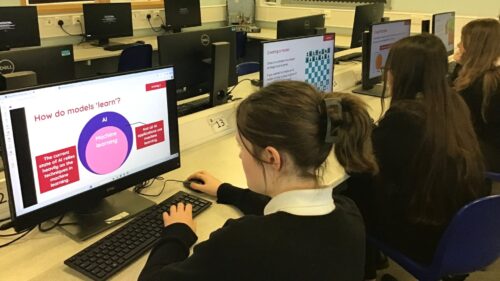
This is all very important, but the Action Plan fails to mention what I think is one of the most important investments we need to make, which is in schools.
“Most people overestimate what they can achieve in a year and underestimate what they can achieve in ten years.”
While reading the section of the Action Plan that dealt with AI skills, I was reminded of this quote attributed to Bill Gates, which was adapted from Roy Amara’s law of technology. We tend to overestimate what we can achieve in the short term and underestimate what we can achieve in the long term.
In focusing on the immediate AI gold rush, there is a risk that the government overlooks the investments we need to make right now in schools, which will yield huge returns — for individuals, communities, and economies — over the long term. Realising the full potential of a future where AI technologies are ubiquitous requires genuinely long-term thinking, which isn’t always easy for political systems that are designed around short-term results.
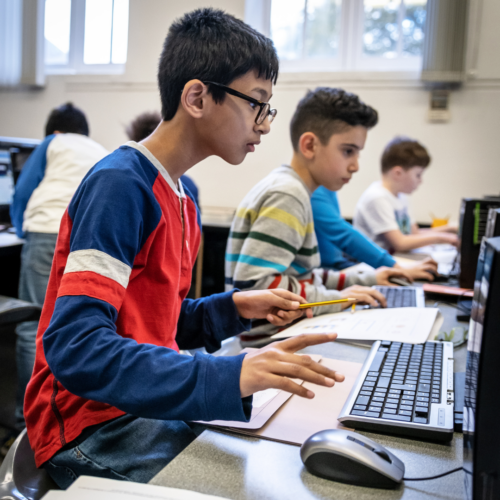
But what are those investments? The Action Plan rightly points out that the first step for the government is to accurately assess the size of the skills gap. As part of that work, we need to figure out what needs to change in the school system to build a genuinely diverse and broad pipeline of young people with AI skills. The good news is that we’ve already made a lot of progress.
AI literacy
Over the past three years, the Raspberry Pi Foundation and our colleagues in the Raspberry Pi Computing Education Research Centre at the University of Cambridge have been working to understand and define what AI literacy means. That led us to create a research-informed model for AI literacy that unpacks the concepts and knowledge that constitute a foundational understanding of AI.
In partnership with one of the leading UK-based AI companies, Google DeepMind, we used that model to create Experience AI. This suite of classroom resources, teacher professional development, and hands-on practical activities enables non-specialist teachers to deliver engaging lessons that help young people build that foundational understanding of AI technologies.
We’ve seen huge demand from UK schools already, with thousands of lessons taught in UK schools, and we’re delighted to be working with Parent Zone to support a wider roll out in the UK, along with free teacher professional development.

With the generous support of Google.org, we are working with a global network of education partners — from Nigeria to Nepal — to localise and translate these resources, and deliver locally organised teacher professional development. With over 1 million young people reached already, Experience AI can plausibly claim to be the most widely used AI literacy curriculum in the world, and we’re improving it all the time.
All of the materials are available for anyone to use and can be found on the Experience AI website.
There is no AI without CS
With the CEO of GitHub claiming that it won’t be long before 80% of code is written by AI, it’s perhaps not surprising that some people are questioning whether we still need to teach kids how to code.
I’ll have much more to say on this in a future blog post, but the short answer is that computer science and programming is set to become more — not less — important in the age of AI. This is particularly important if we want to tackle the lack of diversity in the tech sector and ensure that young people from all backgrounds have the opportunity to shape the AI-enabled future that they will be living in.
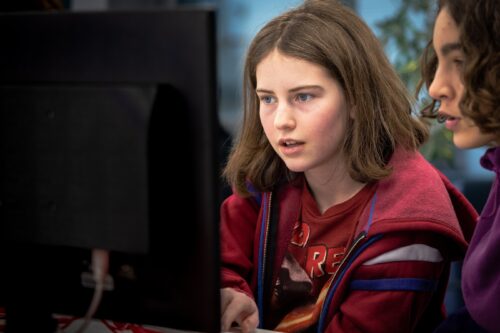
The simple truth is that there is no artificial intelligence without computer science. The rapid advances in AI are likely to increase the range of problems that can be solved by technology, creating demand for more complex software, which in turn will create demand for more programmers with increasingly sophisticated and complex skills.
That’s why we’ve set ourselves the ambition that we will inspire 10 million more young people to learn how to get creative with technology over the next 10 years through Code Club.
Curriculum reform
But we also need to think about what needs to change in the curriculum to ensure that schools are equipping young people with the skills and knowledge they need to thrive in an AI-powered world.
That will mean changes to the computer science curriculum, providing different pathways that reflect young people’s interests and passions, but ensuring that every child leaves school with a qualification in computer science or applied digital skills.
It’s not just computer science courses. We need to modernise mathematics and figure out what a data science curriculum looks like (and where it fits). We also need to recognise that AI skills are just as relevant to biology, geography, and languages as they are to computer science.
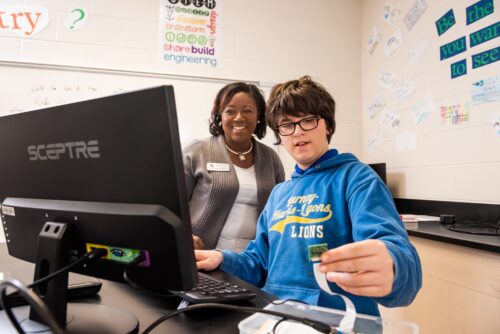
To be clear, I am not talking about how AI technologies will save teachers time, transform assessments, or be used by students to write essays. I am talking about the fundamentals of the subjects themselves and how AI technologies are revolutionising the sciences and humanities in practice in the real world.
These are all areas where the Raspberry Pi Foundation is engaged in original research and experimentation. Stay tuned.
Supporting teachers
All of this needs to be underpinned by a commitment to supporting teachers, including through funding and time to engage in meaningful professional development. This is probably the biggest challenge for policy makers at a time when budgets are under so much pressure.
For any nation to plausibly claim that it has an Action Plan to be an AI superpower, it needs to recognise the importance of making the long-term investment in supporting our teachers to develop the skills and confidence to teach students about AI and the role that it will play in their lives.
I’d love to hear what you think and if you want to get involved, please get in touch.
Website: LINK
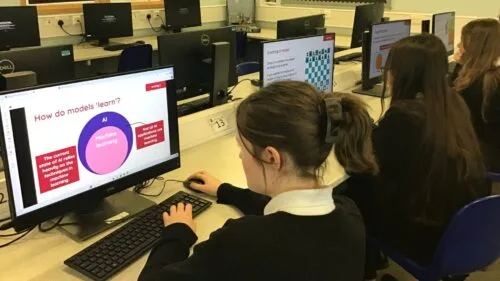
Schreibe einen Kommentar
Du musst angemeldet sein, um einen Kommentar abzugeben.